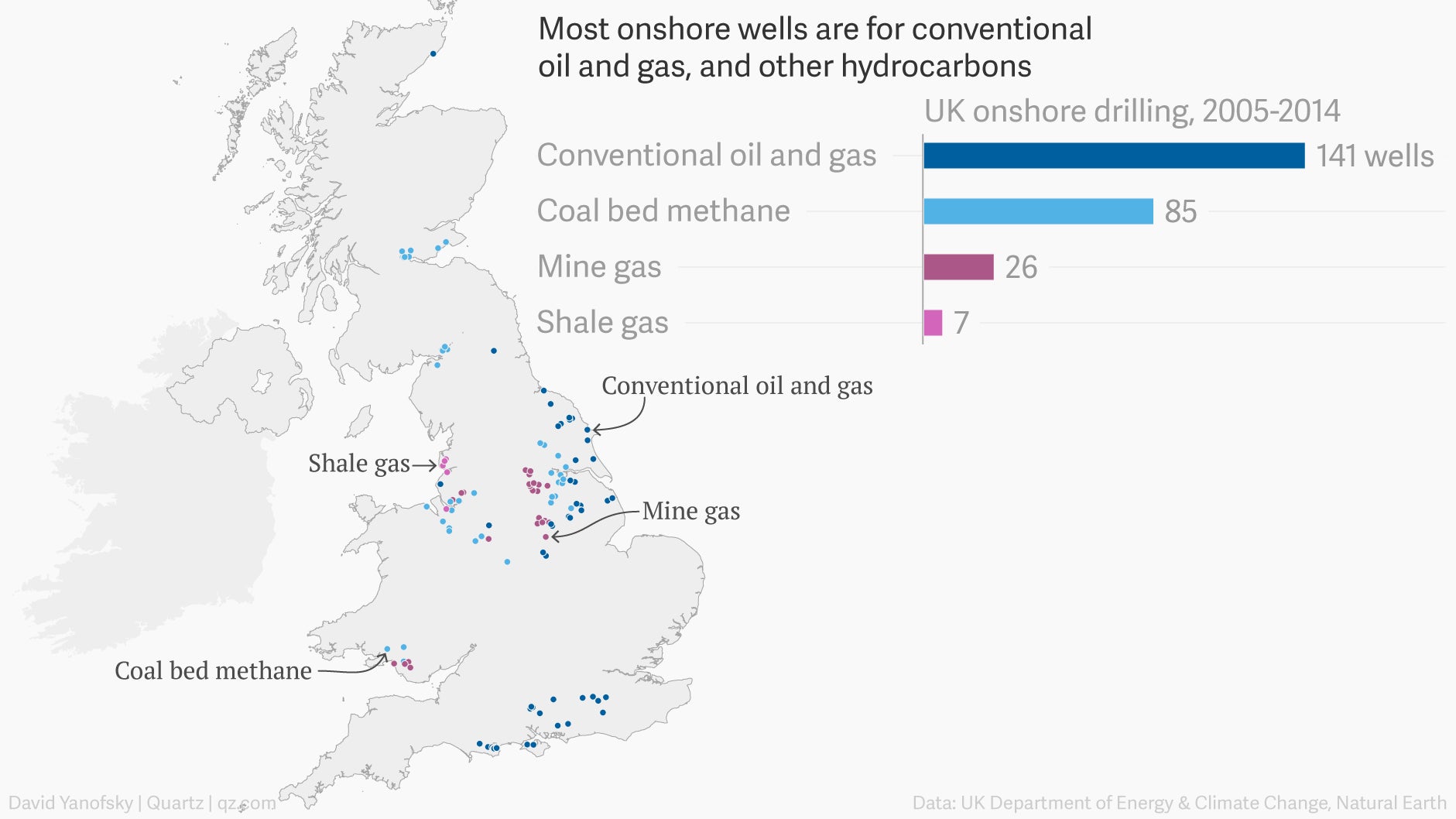Nearly half the UK is up for fracking, and these maps show you where
Shale exploration has sparked passionate debate in the UK, since drilling first caused earth tremors back in 2011. Since then a few, scattered wells have been tested, but nothing yet on a commercial scale. That could be changing, with the government firmly backing shale gas, and encouraging drillers to invest.
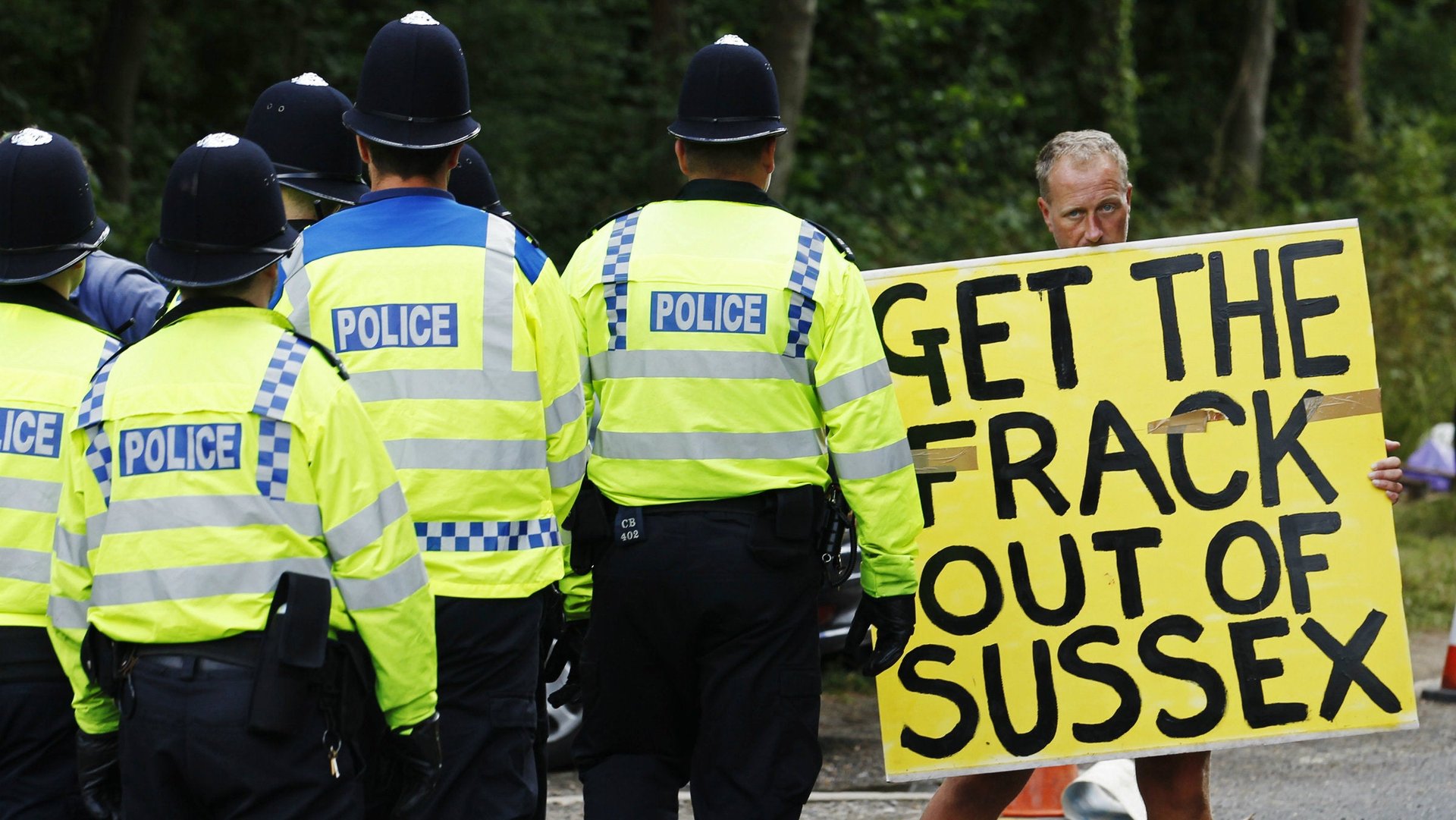

Shale exploration has sparked passionate debate in the UK, since drilling first caused earth tremors back in 2011. Since then a few, scattered wells have been tested, but nothing yet on a commercial scale. That could be changing, with the government firmly backing shale gas, and encouraging drillers to invest.
In fact, nearly half the country is up for grabs to shale exploration. Together, the already-licensed and offered areas cover 48.1% of the country.
This map shows all the areas for which companies could submit license applications in the UK’s latest bidding cycle, run by the government and called the “14th round.” Results are due out early this year:
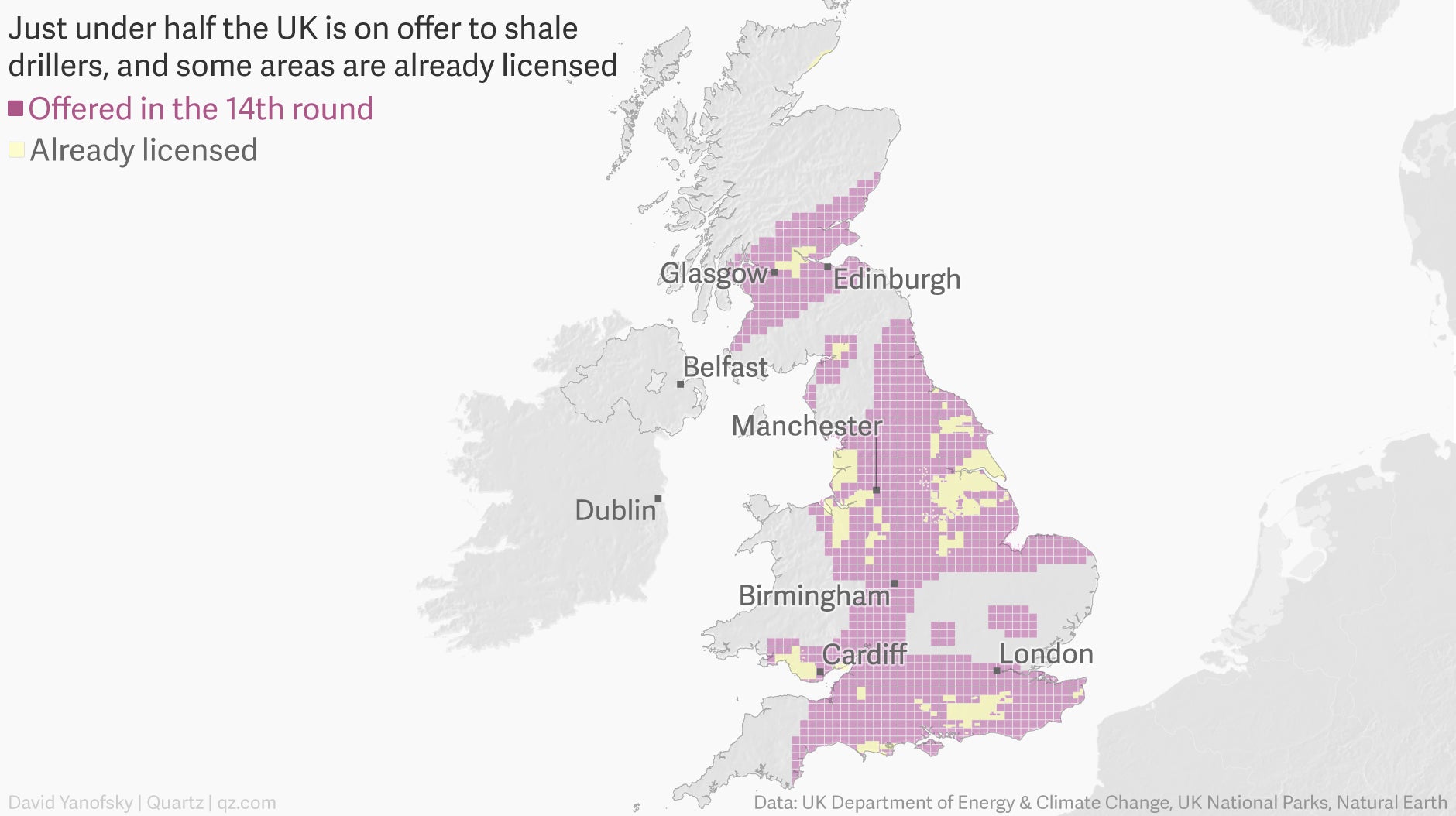
It’s unlikely that companies will buy the rights to drill in all of the areas on offer. Shale isn’t known to exist in most of the space. And even if firms apply, there are plenty more hurdles to jump, like gaining planning permission from local councils.
Meanwhile, shale skeptics are pushing back. A parliamentary debate this week led to a government pledge to not allow fracking in national parks, or at sites deemed to be of special interest or outstanding beauty. Scotland just announced that it won’t allow shale drilling without more analysis, and some local planning applications are being delayed for further review in England.
Some of the areas that companies can apply to frack overlap the areas where most shale deposits have been identified by geologists. Some existing drill licenses are right on top of them:
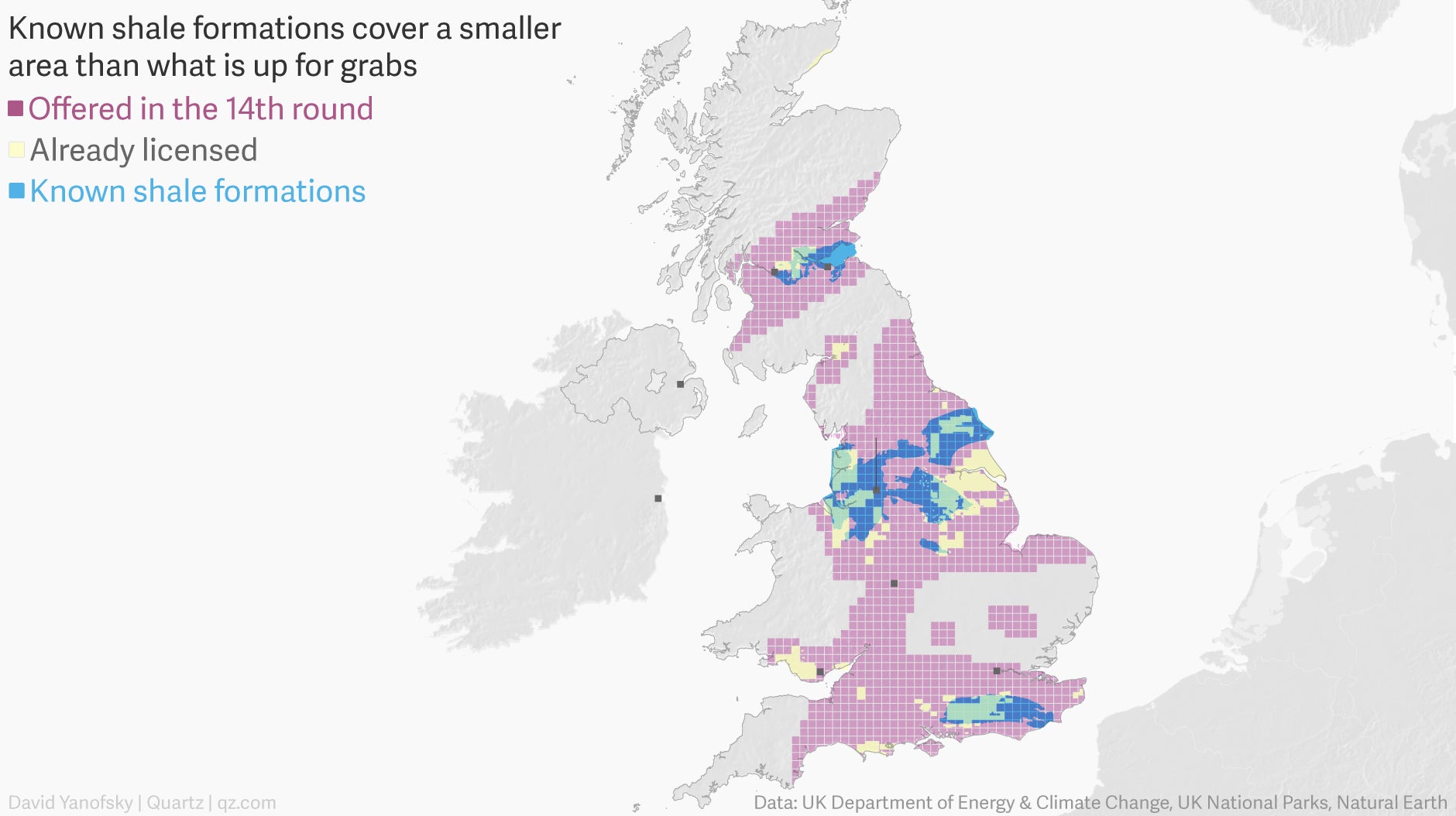
But there are lots of things in the way. National parks, now exempted, overlap many of the shale areas:
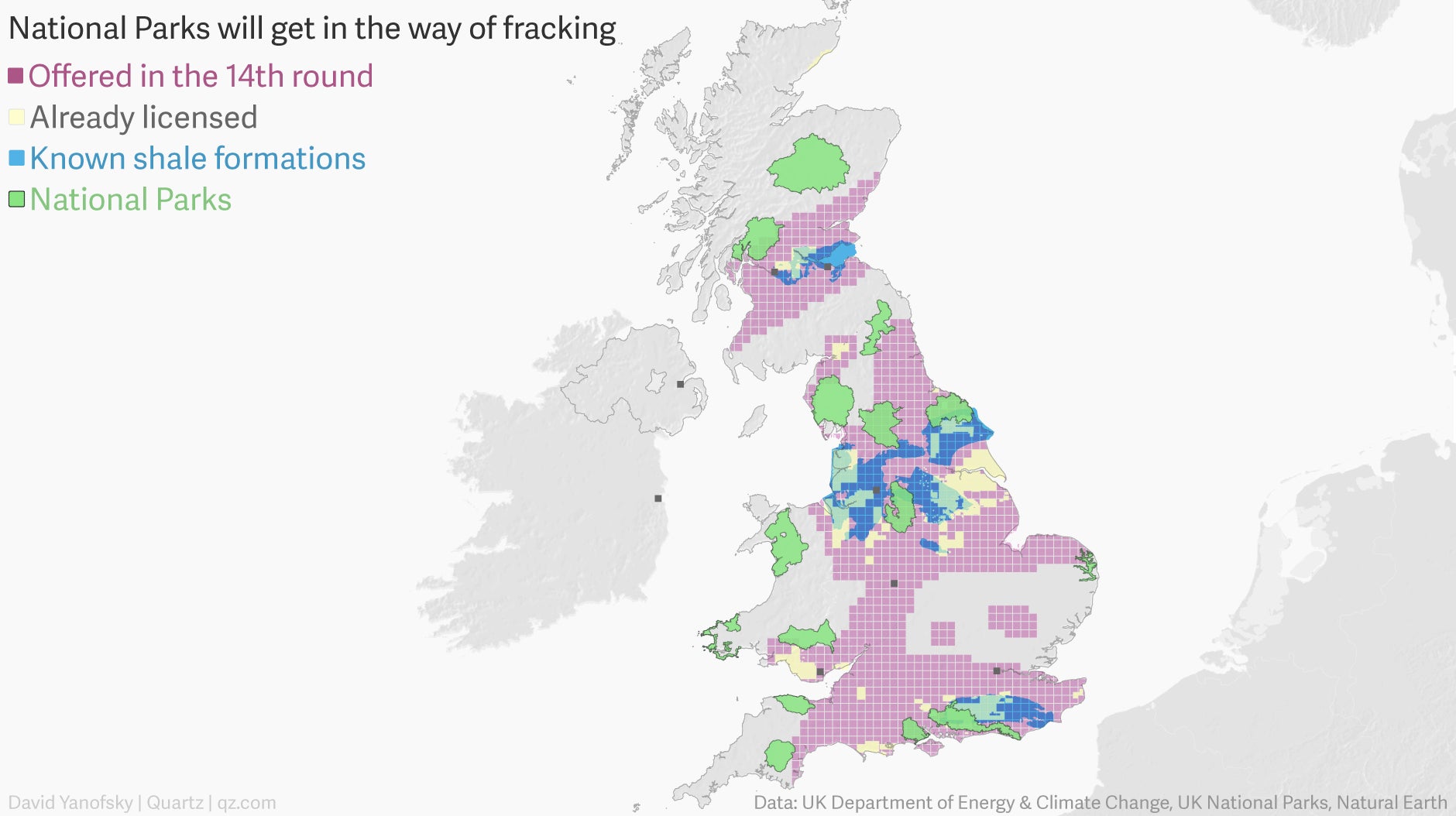
Some of the shale fields are underneath large urban areas, like Manchester. The UK government has submitted a bill to allow for exploration under homes and other buildings. But persistent public opposition, and a possible change of government after elections in May, could make for laws that are less amenable to fracking:
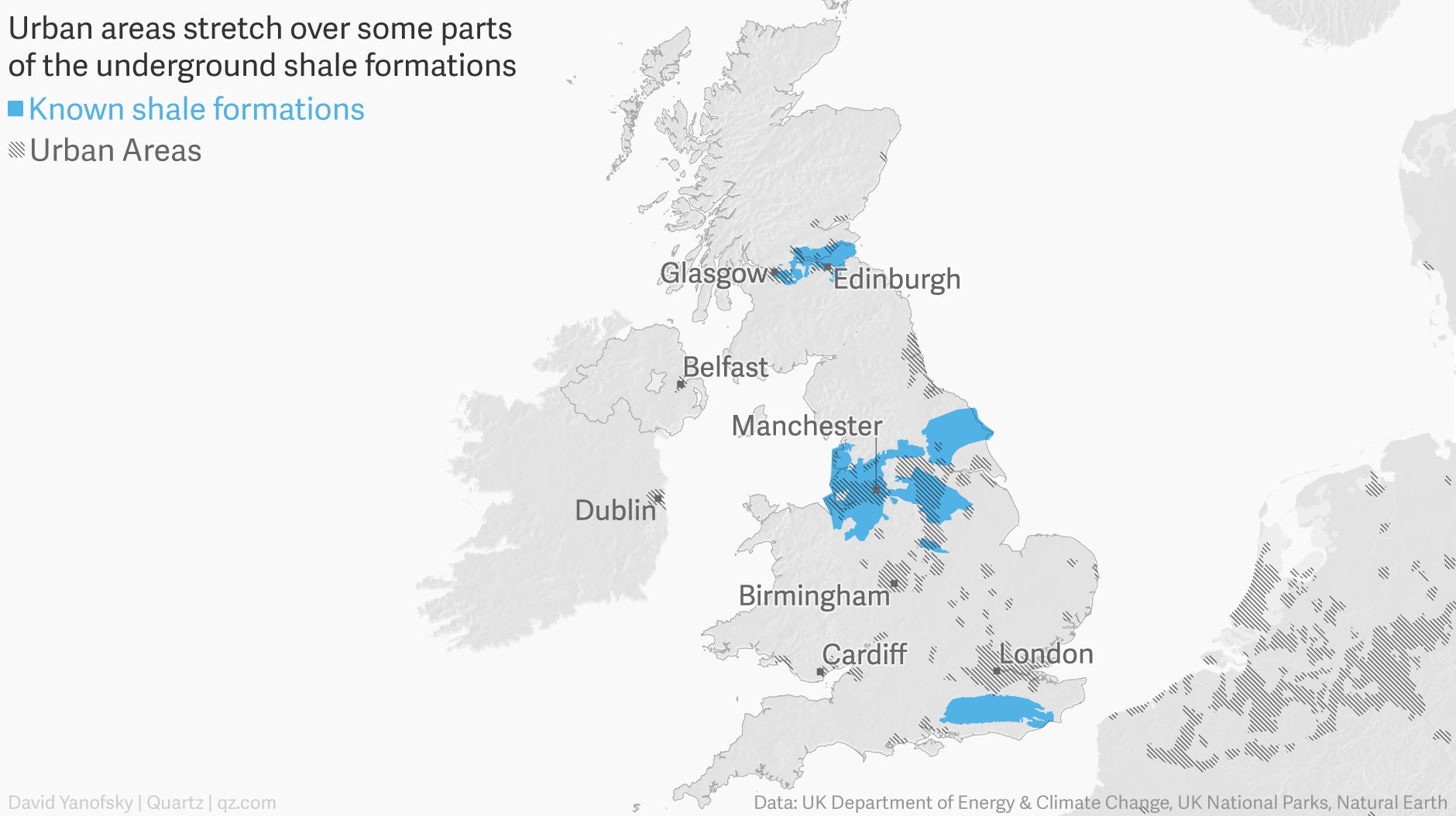
The government hasn’t yet announced which companies will be awarded new licenses. But shale exploration is an expensive business, and no commercially viable “plays”—areas with enough gas or oil to pump, sell, and meet costs—have yet been found in the UK, or for that matter in the rest of Europe. Drillers were already cautious about the risks they were willing to take in unproven shale areas, and the falling the price of oil hasn’t helped the economics of these bets. But some drillers are unbowed.
The UK isn’t virgin territory when it comes to drilling. With an energy system that relies heavily on coal and gas, and an economy enriched by oil, the country has long been a hydrocarbon producer both on and offshore:
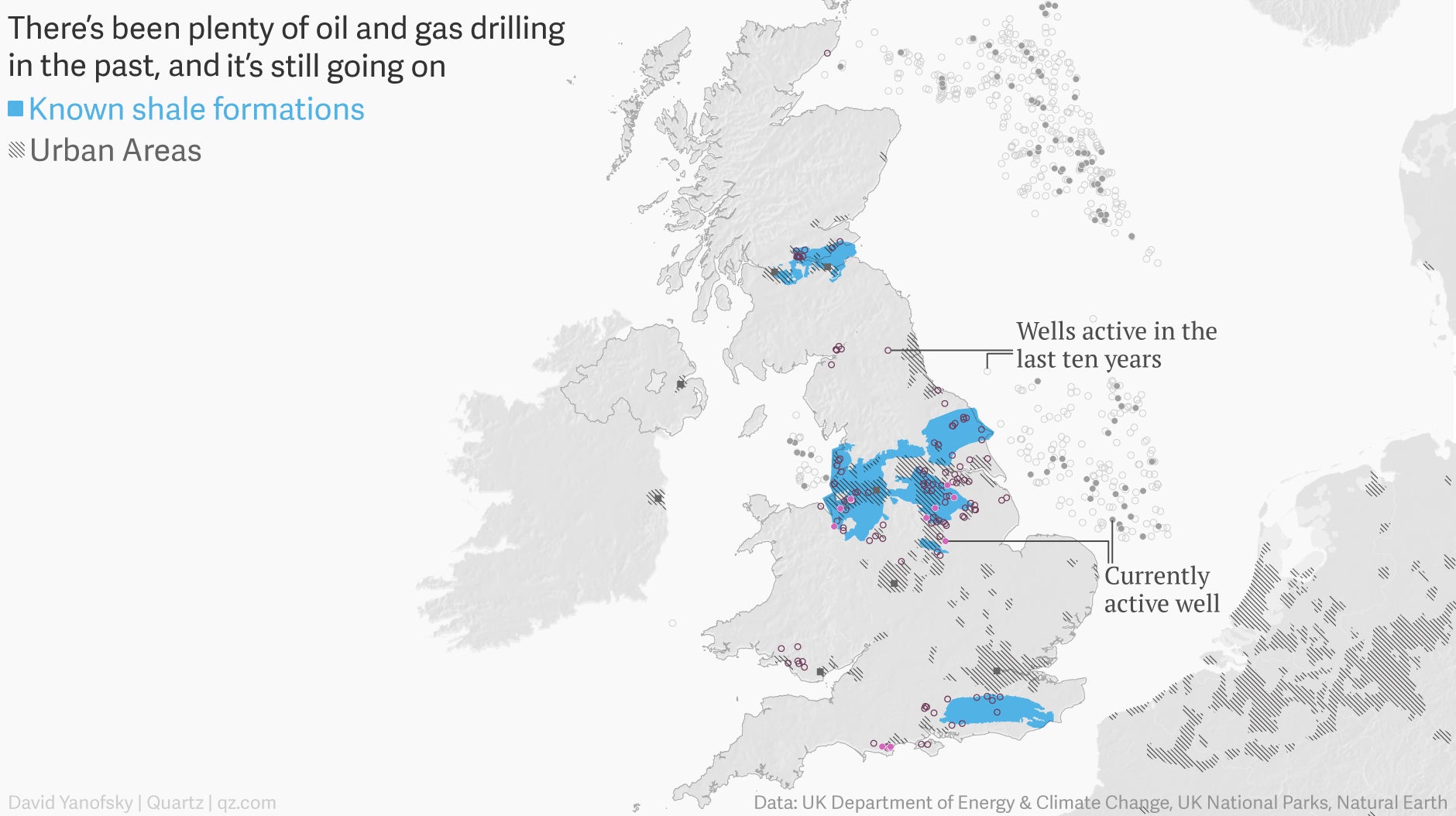
But fracking is relatively new; there have been just seven wells targeting shale gas (paywall) operating over the past 10 years. By contrast, 141 onshore wells have been extracting or exploring for conventional oil and gas over the same period:
